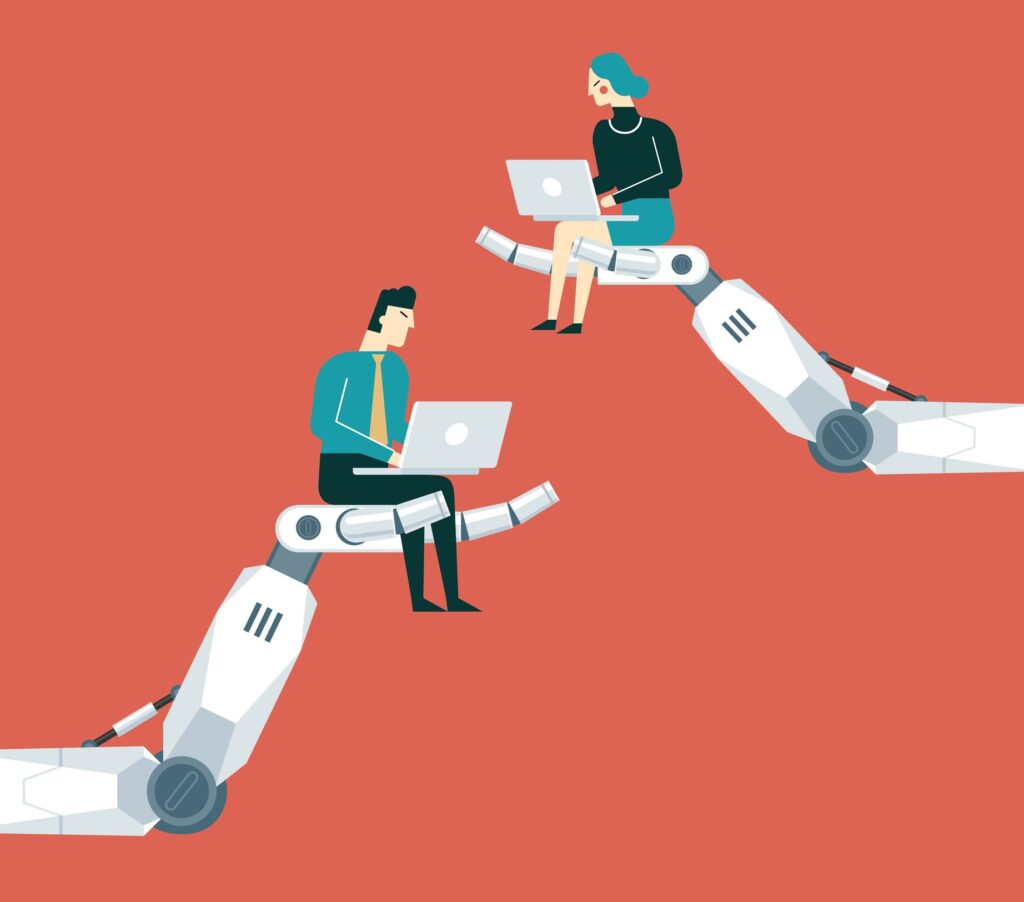- In a survey, 49% of business leaders said knowing how to use ChatGPT could top having a degree.
- About three-quarters of leaders say mandating the use of the AI tool can boost worker productivity.
- Despite this, 36% of respondents didn't see ChatGPT experience as more valuable than a degree.
If you ask ChatGPT whether it makes more sense to learn how to use the artificial intelligence tool or go to college, you get a version of "It depends."
If you ask corporate types, you get a more surprising ambivalence: In a recent survey, 49% of business leaders said that knowing how to chat up the chatbot could, in some cases, amount to more than four years of lectures and term papers.
The early April survey of 800 senior managers, directors, and execs by Intelligent.com also found that eight in 10 regard ChatGPT experience as valuable for entry-level gigs.
The results illustrate how quickly some bosses expect the technology will redraw the way work gets done, and also how readily some of them are rethinking degree requirements in favor of a show-me-what you-can-do approach.
Huy Nguyen, chief education and career development advisor at Intelligent.com, told Business Insider that many execs see AI as a speedy way to boost productivity.
"They're thinking that if people have experience with chatGPT — generative AI — they can come in there and have an immediate impact on the business," he said.
About three-quarters of respondents said they required ChatGPT experience for some entry-level jobs to increase how much workers could accomplish and to help employees learn. Sixty-eight percent said it was to promote creativity.
AI could close a skills gap.
In polls, some workers have said they're worried AI will push them out of a job. Yet many bosses appear focused on how the technology could amp up the abilities of their employees, especially those just starting out, Nguyen said.
"They may not have the same experience or skillset as others," he said, adding AI might make it "easier to close the skills gap" between new workers and veterans.
With more seasoned workers, Nguyen said there's often less need to worry about how technology could supercharge people's abilities because those who have been at it for a while have had time to build up expertise. "You're hiring for experience," he said.
It's also possible that some business leaders expect that newer — and presumably younger — workers might have more exposure to AI, Nguyen said.
Regardless, a greater focus on what someone can do and less on formal training reflects a certain pragmatism among employers, he said. For many young people in the US, scaling a mountain of debt in pursuit of a degree might not be worth it. And workers can be hard to come by in many fields, so doing away with degree rules can widen the pool of candidates.
"What's more important is actually demonstrating the skill," he said. "If you're a programmer, you either can program or you can't."
Don't drop out just yet.
Not all leaders are ready to skip over the education sections of résumés, however. In the survey, 36% of respondents didn't see experience with ChatGPT as more valuable than a college degree, and 12% were unsure.
While some employers set aside degree requirements, not all have made good on promises to hire more people who didn't attend college, one study found.
Nguyen said that regardless of how it's done, what's important is that workers keep learning. Nearly all of those polled endorsed that idea.
Just under nine in 10 leaders said that having taken courses on ChatGPT could make job candidates for certain roles more attractive. Nguyen said he suspects what many leaders are really after — more than those who took AI 101 — is workers who are conversant in using the technology.
"ChatGPT is still quite new," he said. "The course that you took 12 months ago may actually be irrelevant. And you may not be using ChatGPT in the future — and may be using something else."
For now, though, workers with an eye on an entry-level role might need to get used to working with AI. About six in 10 companies require experience with ChatGPT for at least some entry-level jobs, particularly in tech, according to the survey. That includes 7% of companies that require it for all jobs.
Some eight in 10 execs said knowing how to use AI would be even more important for entry-level workers in 2025.
"I don't think that people fully understand the business impact of it yet, but it's moving quick," Nguyen said.
